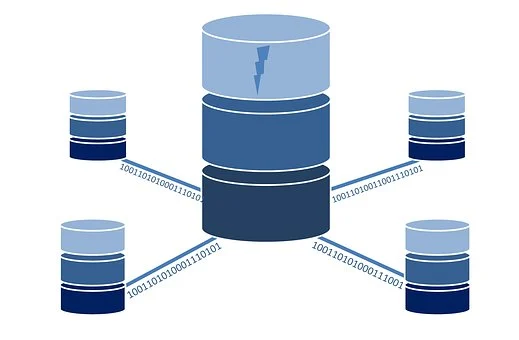Solarwinds is a database management system that can help businesses with many aspects of database management, including network, IT systems, and performance management. However, no matter how good Solarwinds is, you need database administration skills to use the tool properly.
These are the skills employers like IT, software, and financial companies will require a database manager to possess. The following are some of the most critical data administration skills you need:

Data modeling and database design
Database design is the process of organizing data according to a database model. The database designer must determine how they store the data and how different data elements interrelate. Therefore, they must decide on a logical data model and then design the database based on how they would like to store the data and categorize it.
The data modeling and database design are more effective with a tool that supports major DBMS. the designer must ensure the efficiency of the design of the physical database and the organization of the data within it.
Metadata management and repository usage
Databases have a lot of data, so you need small data to describe larger amounts of data. Metadata is the short version of more extensive data; its management is usually up to the database administrator or the data architect. Without metadata, the data in a database is almost meaningless.
The data administrator is responsible for collecting, storing, and managing database metadata. The database administrator must also be able to question the organization’s metadata to see if it takes the best form. If it does not, it is up to the database administrator to ensure it does.
Backup and recovery
Every intelligent database administrator ensures that the database has an insurance policy in case of any mishap. Databases encounter many physical and digital threats when people try to access them and steal data.
The database administrator is responsible for developing adequate data backup and recovery policies and procedures. It is also the administrator’s job to implement them. The best data backup and recovery procedures are based on how volatile data is and application availability needs.
Performance management and tuning
Dealing with database performance issues is one of the most important jobs of a database administrator. Databases often face problems with performance that need to be remedied immediately, or businesses will suffer the consequences.
Database administrators typically use a database performance monitoring and analysis tool to fix performance issues. The database administrator might have to change the data structure, SQL, application logic, or the entire DBMS to optimize database performance.
Data integrity
Storage space is vital for database management, so the data input and retained in the database should be appropriate and relevant. The database administrator’s job is to design the database so users can store only the correct data and the data can retain its integrity.
The database administrator will utilize various types of data integrity, such as entity integrity, check constraints, and database triggers. The database administrator is responsible for ensuring the database’s physical integrity and taking swift action if anything diminishes it.
Procedural skills
Modern databases are the main points of data management for organizations. Therefore, many people in the organization will use the databases though they might not know precisely how they work. Some businesses also prefer virtual data room service providers to help them store their data.
The database administrator’s job is to ensure others understand the database management procedures, which is why the DBA needs procedural skills. They will use those skills to design, implement and maintain data management procedures to ensure all stakeholders get the most effective use of the database.
Data security
Database administration requires data security skills because it is the data administrator’s job to ensure the security of the data the database holds. The DBA should implement procedures to ensure that only authorized users can access the database.
The administrator will hence design and implement a security infrastructure to ensure the protection of the data in the database. Database administration also requires database auditing skills to test and document compliance with the highest security standards.
Capacity planning
As an organization grows, so will data consumption and usage of its database from within and outside the organization. The database administrator’s job is to ensure the database can handle the increase in activity, which is why the DBA requires capacity planning skills.
The database administrator must prepare the database to allow it to handle more connections, data, and users. Capacity planning involves the ability to predict the growth in database activity based on application and data usage patterns. The data administrator will then implement the requisite changes to accommodate the increase in database activity.
Systems management and networking skills
When you implement a database, the entire organization will access it. Therefore, you can expect the database to interact with other organization members' technologies to perform their functions.
Therefore, a database administrator requires systems management and networking skills. The database administrator must have at least a cursory understanding of an organization’s systems and how they interact. The database administrator must know how to merge database administration tasks with general systems management tasks, for example, network management, payments processing, payroll requirements, job scheduling, file transfer, etc.
Though database administration is a specialized skill, a database manager must know how various organizational processes interact, which is a big-picture skill.
Storage management techniques
The primary function of data administration is to ensure the database is functional so users can access and retrieve data stored in the database.
Therefore, the data administrator must be well versed in storage management techniques and have the skills to ensure data is stored most efficiently. Data stored in a database must reside in a physical location, even when using cloud storage.
Therefore, data administrators must know the best storage software and hardware for the database and continually learn about the best options. They should also know how the storage options interact with the database management system.
The job of a data administrator is difficult and complex, as you can surmise from the information above. Database administration requires many skills, including the ones outlined in this article.
They will also need other soft skills like communication, time management, problem-solving, and leadership if they are part of a team. To be a database administrator, learn all the skills you will require for the job.


